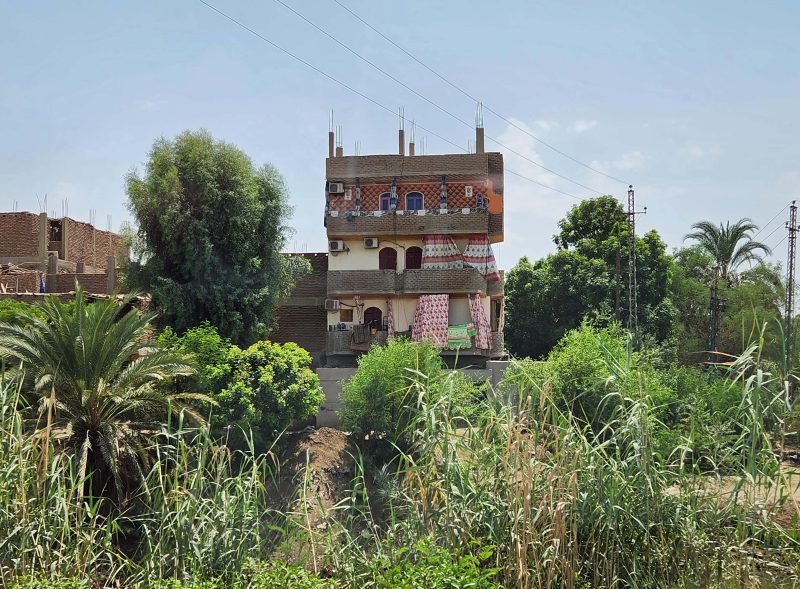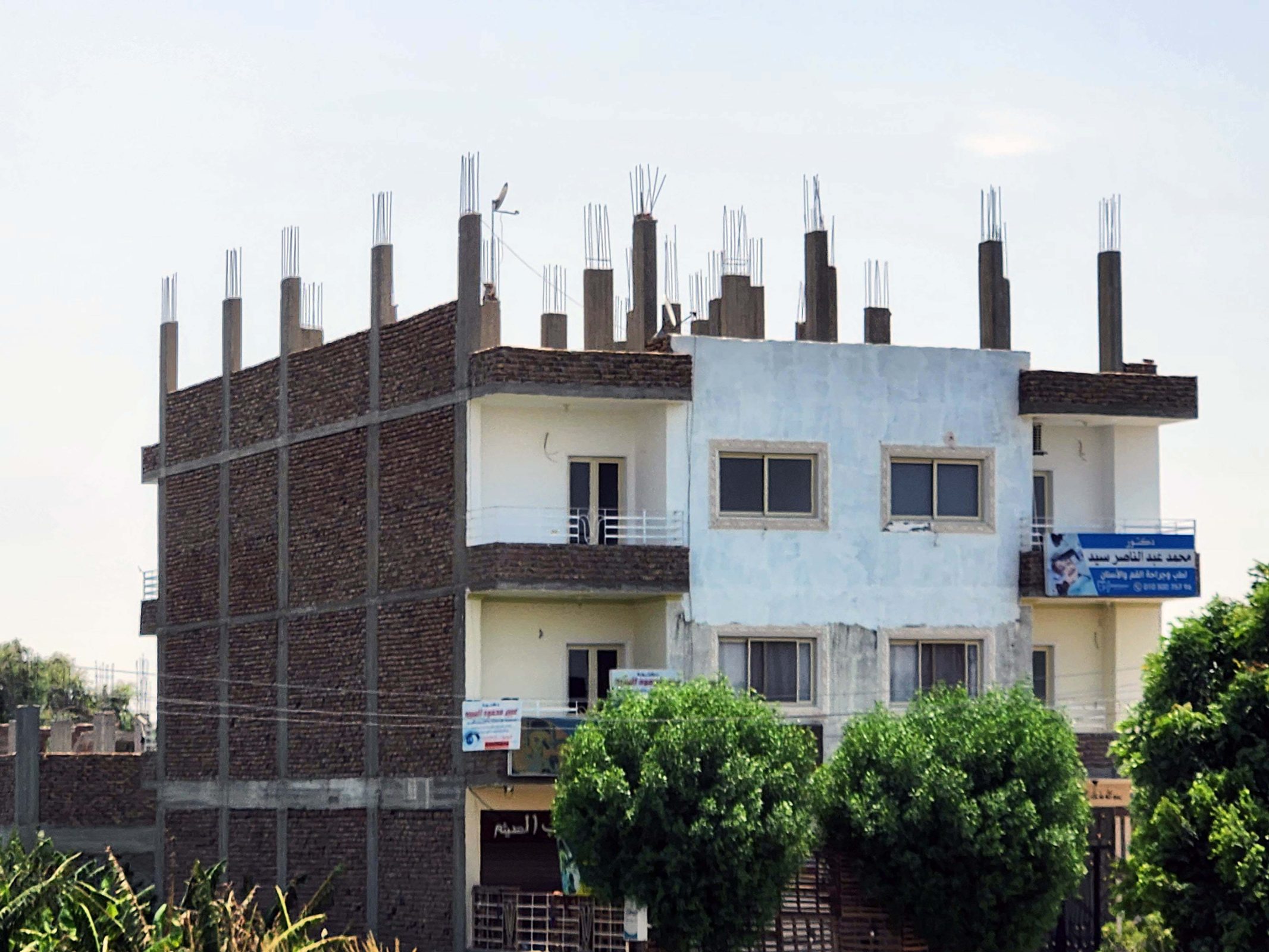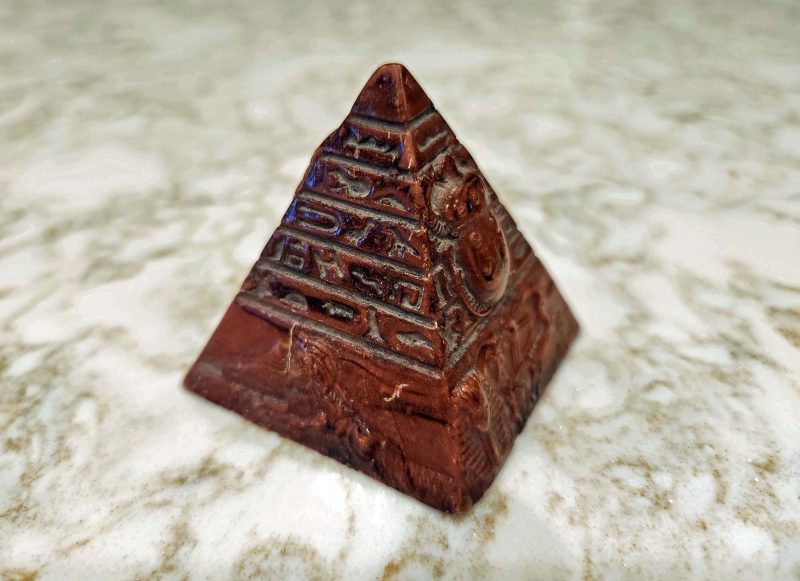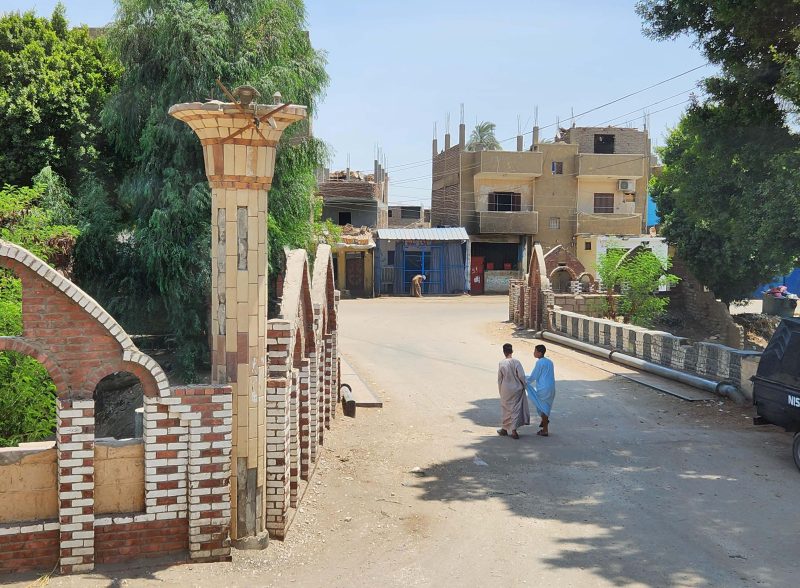Whew! For our BT, Ted and I woke up at 4:00 a.m. on Tuesday, and arrived in Tel Aviv just before noon, local time, on Wednesday. We spent Thursday, Friday, and Saturday taking daily eight-hour tours in Jerusalem and Bethlehem in upper-90s heat. Sunday was a travel day from Jerusalem to Cairo. Monday and Tuesday included two more consecutive days of 8-hour tours in Cairo and Giza with temperatures in the low 100s. On Wednesday, we were awake at 4:00 a.m. again to fly from Cairo to Luxor and, upon our midday arrival, headed out in the 108-degree heat for a four-hour tour in Luxor before boarding our ship to begin our Nile River cruise on Thursday. Can you spell “exhausted”?
Hanan told our group that “you aren’t here for vacation; you’re here to learn.” I can’t speak for anyone else in the group, but Ted and I were there for a vacation, hoping to learn new things from our travels.
Today featured a tour of a nearby temple, but after ten long days of travel and walking outdoors in the heat, Ted and I chose to take the day off. Besides, we toured the second largest ancient temple in the world (Karnak) two days ago. We had a wonderfully relaxing and quiet day onboard the ship with a half dozen other people who also chose to skip today’s temple tour.
Because we took the day off, I have no tour information to share, but here are a few notes about Egypt in general.
- The restrooms on our Egyptian tours have been—interesting. Hanan tells us in advance which ones are awful and should be avoided and where a (relatively) nicer alternate is located. Most of the restrooms don’t have toilet paper, so Hanan told us to always carry some with us. An attendant sits outside the restroom door, offering a roll of toilet paper for users to take inside and to return when they leave. You don’t get the roll until you pay the tip—about $1.00. Instead of giving the attendant a tip, we were told to simply say “Viking” and to make a “V” with our fingers so the attendants would know we were with the Viking cruise group and would give us the roll of toilet paper tip-free. Before leaving, our three guides paid the attendants a flat fee for the restroom use. Even so, some of the attendants asked us for more money. I guess it doesn’t hurt to try, does it?
- Many places in Egypt still farm and produce goods using the same methods they used 5,000 years ago. That explains the hand-pushed carts we saw on the busy streets, along with the cars and the buses.
- A lot of buildings have rebar extending out of the rooftops. Most buildings had rugs and/or laundry hanging on the railings, indicating that the buildings were inhabited, but I couldn’t figure out a reason for the rebar, so I finally asked Hanan if she knew its purpose. Well, . . . not surprisingly, no one anywhere, including Egypt, likes to pay taxes and everyone everywhere uses any tax loopholes they can. Egypt’s tax laws don’t tax buildings that are unfinished. If rebar extends above the top of the building, the building is technically ready to add another story, thus qualifying the building as incomplete–even if it’s inhabited–and making it tax-free. It’s not very attractive, but it’s cost-saving for the building owners!


- As we drove from place to place during our river cruise excursions, we saw banana trees and papyrus. Papyrus likes to grow in the marshy soil along the banks of the Nile River. Yes, papyrus is still used to make specialty writing paper, especially for artists and calligraphers.
- Vendors were annoying in Egypt. I understand that they are trying to make a living, but they’re so aggressive! Their prices are very flexible, and bargaining downward is easy, but very time-consuming. For example, Ted and I wanted to purchase a mini pyramid as a souvenir of Egypt. The vendor immediately went into his spiel. We politely listened, then offered what we thought it would be worth in the U.S. (about half the vendor’s price). The vendor pretty much ignored our offer and, instead, became chatty with us. “How many women live in your house? How many children?” etc. Our answers were “one” and “zero” at this time. Then he went into his story about how many women and children he supports, and why he needed us to pay more for the pyramid. (I think the message was that, even though he knew the product wasn’t worth the price, he wanted more money out of sympathy for his plight.)
We liked the pyramid we’d selected and we wanted to purchase it, but it was nearly a 30-minute process before he came down and we went up to an agreeable price. I’ve heard people say they love doing that kind of bargaining, but I’m not fond of shopping. I like to know what I’m after, go where I know I’ll find it, pick it up, pay for it, and go home. I don’t like bargaining, and I hate buying a car just because of that. On the bright side, as my Aunt Ruth would say, if stuff like this didn’t happen, we wouldn’t have stories to tell, and I just told a little story.

- I like the picture below. It provides a glimpse of what we saw in the small Egyptian cities. Naturally, there are buildings with exposed rebar on the roofs.
